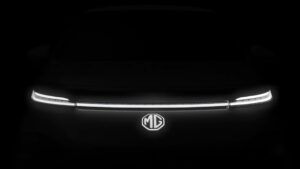Xiaomi, a tech giant known for its smartphones and consumer goods, is entering the automobile business, with plans to debut its first electric vehicle, the SU7, in the first half of 2024. The company’s creator, Lei Jun, articulates a strong vision for this venture, attempting to carve out a separate niche in an already competitive field.
Lei Jun’s plan differs from traditional automobile production methods. Xiaomi plans to use proven technology from major automakers while investing heavily in new research and development. The company’s massive expenditure of more than ten billion yuan and workforce of 3,400 engineers represent a break from industry norms. In a recent TV interview on China Central Television (CCTV), Lei emphasized this unconventional strategy, devoting 10 times the resources generally devoted to a debut model in the automobile market.

Despite Xiaomi’s confidence, Lei Jun admits to potential hurdles. Production bottlenecks and long wait times are major concerns. He recognizes the negative effects on Xiaomi’s reputation if uncontrolled, emphasizing the significance of successfully managing customer demand to minimize lengthy wait times of one or two years.
The SU7 vehicle, which is yet to be officially introduced, is likely to promise a sporty style that may challenge the proportions of established competitors such as Tesla’s Vehicle 3 and Nio’s ET5. It is expected to distinguish itself with its greater size and outstanding range choices of up to 800 km on a single charge, providing adaptability and competitive mileage.

Xiaomi’s ambitious entry into the electric vehicle business will encounter stiff competition from both established firms and emerging entrepreneurs. The success of their first car, the SU7, is dependent on producing a product that excels in performance, technology, and, most importantly, cost. Lei Jun’s unorthodox strategy of exploiting proven technology while investing massively in R&D is a brave move. To avoid ruining Xiaomi’s image, the true test will be overcoming potential manufacturing issues and skillfully controlling user demand. As the automotive environment changes, Xiaomi’s success will be determined by the SU7’s ability to stand out in a competitive electric vehicle market.








